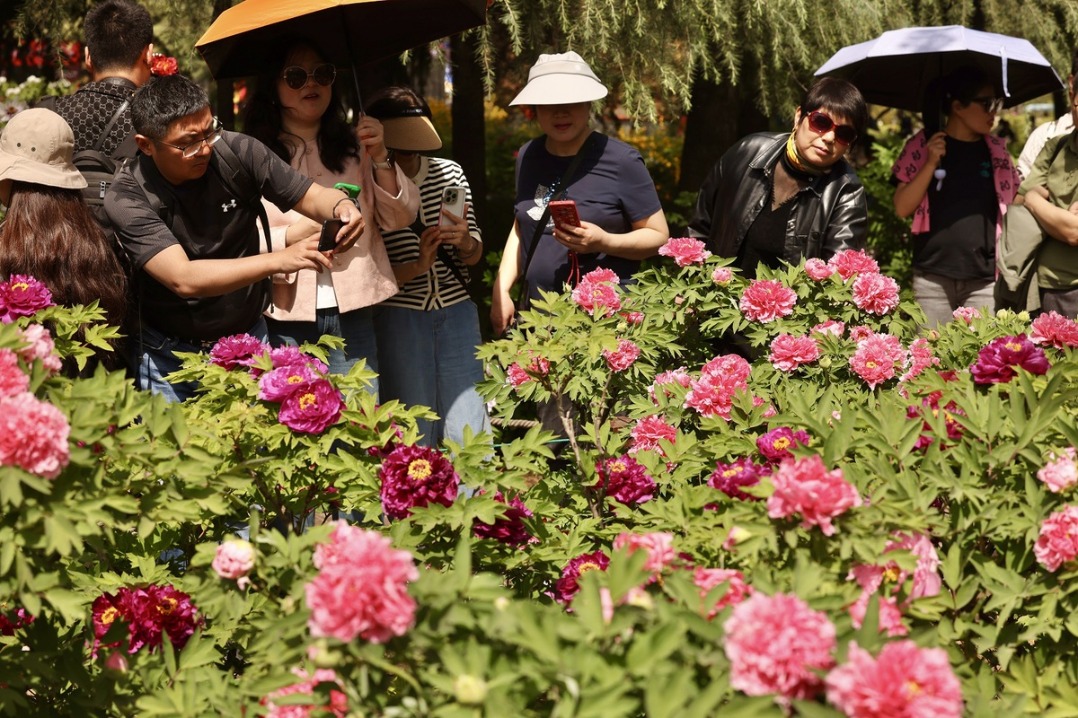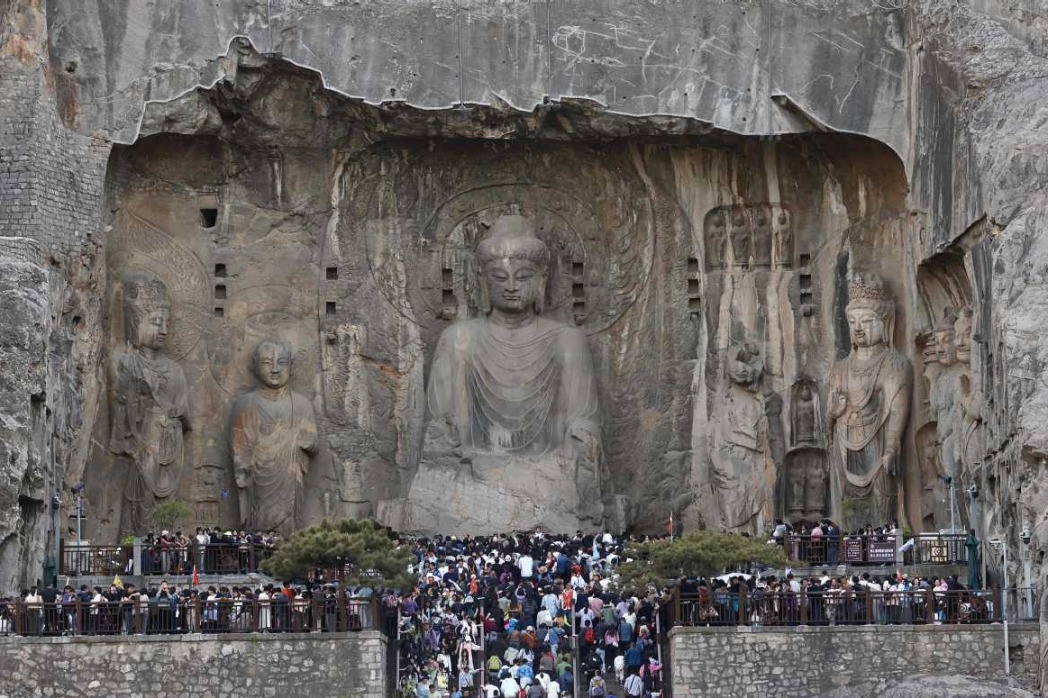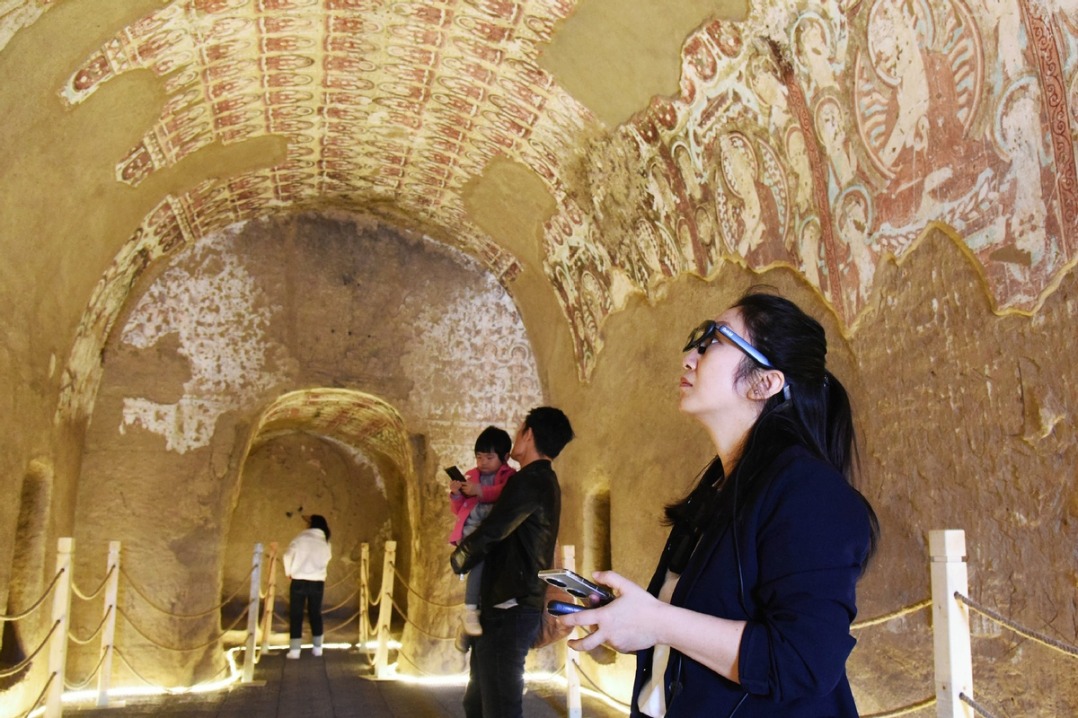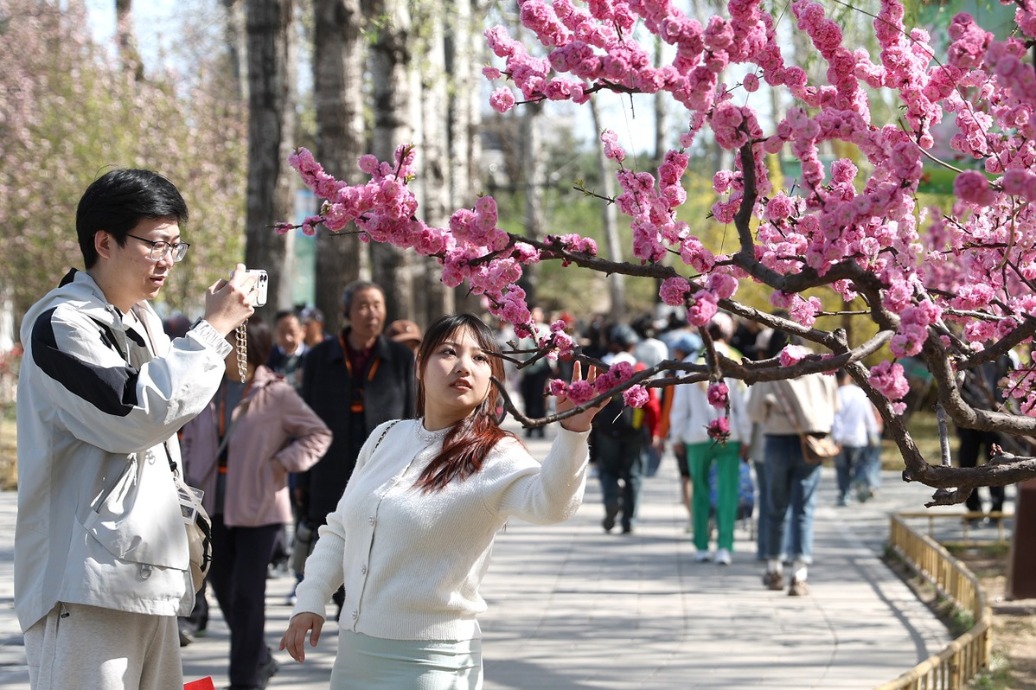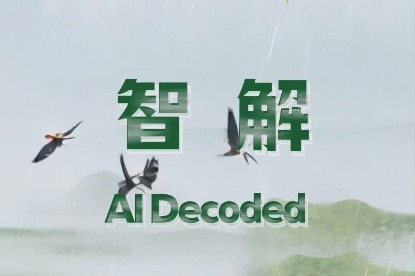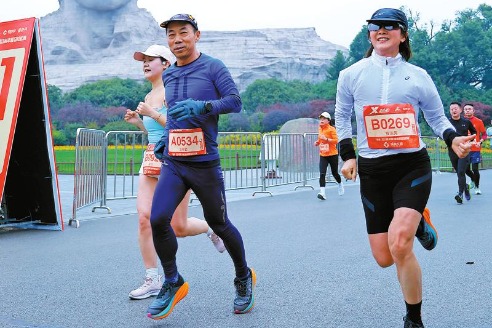Mourners rely on AI to reconnect with lost relatives during Qingming Festival

TIANJIN — In the days surrounding Qingming Festival, when Chinese people pay tribute to the dead, Zhang Ming (pseudonym) found himself able to speak again with his late grandfather — through an AI-generated digital avatar.
"How are you doing over there, Grandpa?" Zhang asked. The response was made in a familiar voice: "I'm doing well, playing chess and chatting with old friends. Make sure you take care of yourself."
Zhang, a resident of Tianjin, used an app called Lingyu, or "Spiritual Encounter", to create a digital clone of his grandfather by uploading photos, voice recordings and some background information. The AI processed the data to generate a lifelike avatar capable of voice and even video conversations in a regional dialect.
"It feels like I'm talking to him again," Zhang said. "My family finds comfort in it."
Recent advances in AI allow users to recreate deceased loved ones with startling realism. Some platforms generate short memorial videos, while others offer interactive avatars capable of mimicking speech patterns and personas of the deceased.
The trend gained public attention after a Chinese variety show featured a celebrity using AI to simulate a conversation with his late in-laws, moving his wife to tears.
The show vividly presented the once fictional "digital resurrection "to audiences, bringing the topic into the public domain. The topic has gained greater relevance this year against the backdrop of AI's turbocharged development.
For many, these digital recreations offer a new form of emotional solace. E-commerce platforms in China now host a growing market for such services, ranging from basic voice replication to real-time "video calls" with AI versions of the dead.
Gao Wei, founder of Lingyu, said the app uses cutting-edge AI to simulate humanlike conversations and emotional recognition. Though only launched two months ago, it has already attracted nearly 10,000 users, with hundreds signed up with the paid service "Digital Life" featured by the app.
"As AI evolves, emotional interactions with multimodal generative AI will become even more immersive," Gao predicts.
But this AI application is not without controversy. While some see the technology as a healing tool, others warn of potential risks.
"If people become trapped in digital grief, it may distort their perception of real-world relationships and emotional health," said Gui Mumei, a sociologist at the Tianjin Academy of Social Sciences.
Legal experts also cited privacy concerns. Wang Bin, a law professor at Nankai University, noted that "AI resurrection" involves sensitive personal data, which includes biometric details such as voices and images, as well as biographical information. If misused, surviving relatives could encounter privacy violations or defamation.
China's law regarding protection of personal data stipulates that citizens can access, copy, correct and delete the personal data of their deceased close relatives, provided such actions serve their lawful and legitimate interests.
There were instances where businesses or individuals "digitally revived" deceased celebrities for commercial interests, which is not only off-putting but also likely illegal, Wang said.
To govern AI-generated content, China has introduced regulations such as provisions on the administration of the deep synthesis of internet-based information services and the interim regulation of the management of generative AI services.
With AI resurrection related services in their infancy, supervision over the industry needs to be constantly reformed to fend off technical and ethical risks.
"The challenge is to ensure that this technology serves the emotional needs of people without crossing ethical boundaries," said Lin Xiao, an AI researcher at Shanghai Normal University.
Xinhua
- Mourners rely on AI to reconnect with lost relatives during Qingming Festival
- Eight heroes returned by South Korea identified
- China, Iraq establish joint research lab to ensure energy stability
- PDL files million yuan lawsuit against influencer
- New plant species discovered in Jiangxi
- Unnamed martyr reburied after 76 years in Yichang
















